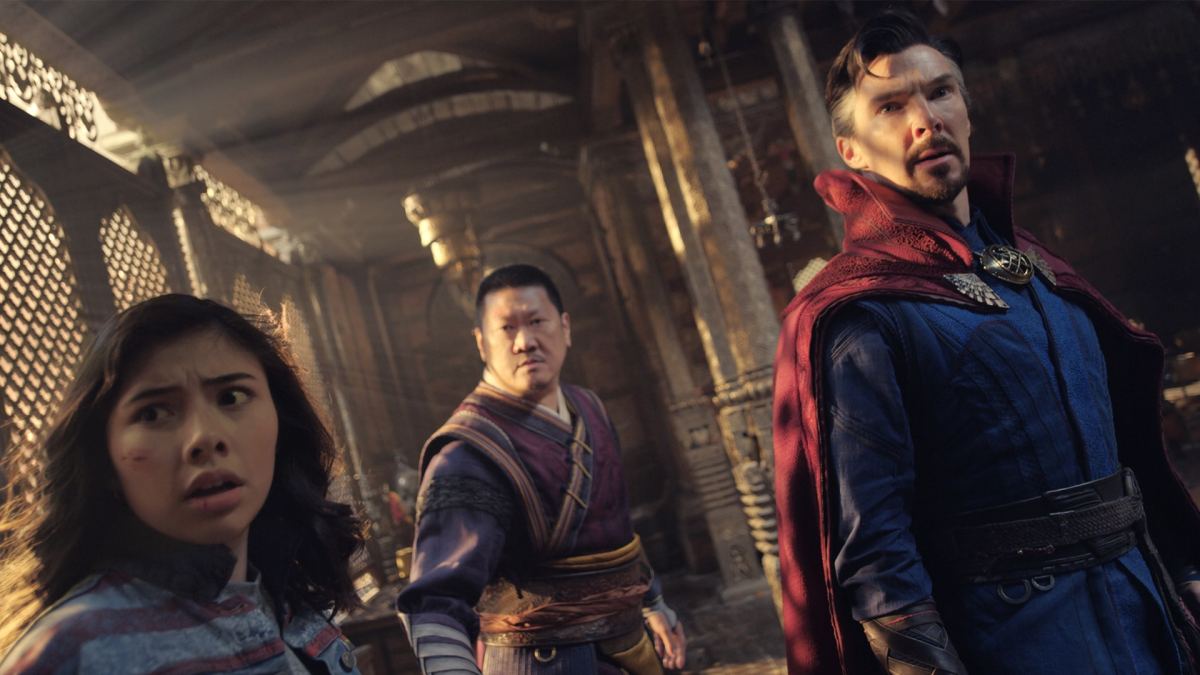Back in 2019, I watched the culmination of the Infinity Saga, Avengers: Endgame, in a theater packed beyond maximum capacity. I cheered, just like everyone else, as every Marvel hero that I’d been following over the past 11 years engaged in a fight over the fate of existence against Thanos. It was cathartic and one of the most memorable experiences I’ve ever had in a theater. A little over three years later, the nicest thing I can say about the Marvel Cinematic Universe is that I’m indifferent to it. It’s because trying to keep up with everything in the MCU has become like homework; it’s unnecessary work that only serves to keep audiences busy and give off an illusion of importance.
Marvel was always going to encounter the problem of its burdensome continuity the longer the MCU went on. Of course, when Marvel only released two-to-three movies a year, it was more manageable. If you wanted to follow along with the main plot, all you had to do was go to the movies every couple of months for two hours. But now in 2022, there’s just too much Marvel content releasing at once for the average audience member to have time to even keep track of it all.
Between May 2021 and May 2022, we had five movies — Black Widow, Shang-Chi and the Legend of the Ten Rings, Eternals, Spider-Man: No Way Home, and Doctor Strange in the Multiverse of Madness — and four TV series — Loki, What If…?, Hawkeye, and Moon Knight. Even if you’re a diehard Marvel fan, you can’t not look at a list of all of the Marvel products that came out in the past year and think that it’s a bit excessive. That’s not even factoring in all of the future shows and movies being announced, giving off the impression that they’re part of a grand plan. Yet we don’t even know what the plan is.

Now that Thanos has been beaten, what comes next? The early Marvel films worked as a shared universe because they were all in clear service of a single goal: introduce the heroes so they can team up as the Avengers. Once that happened, the next logical step was to establish the threat that they would have to fight. But now that the threat has been defeated and the day is saved, it isn’t clear what the next great threat will be or what the end goal of MCU Phase 4 is. It’s seemingly framed as having to do with the multiverse, but that’s no indication of what among this huge spectrum of movies and shows is essential viewing. So in the absence of knowing what is and isn’t important, suddenly everything is important.
Take Doctor Strange in the Multiverse of Madness. The film was marketed as being the next major step in the MCU, so audiences wanted to prepare themselves for whatever may be in store. But how should they have prepared for the film? Well, watching the original Doctor Strange would be a good place to start, but Doctor Strange appeared in myriad movies between that film and its sequel — so one would also need to watch Avengers: Infinity War, Avengers: Endgame, and Spider-Man: No Way Home to follow his story.
However, Wanda Maximoff was going to be a major character too, so watching WandaVision would be essential as well. And the multiverse was being explored, so if you really wanted to figure out its whole deal, Loki would be required too. Oh, and the trailer showed off an evil Doctor Strange, and there was an episode of What If…? that had an evil Doctor Strange, and since it’s unclear if it was the same one or not, you should probably watch that too.
So just to refresh your memory and prepare for everything that may pop up in one sequel, you would need to watch four movies, two TV shows, and an episode from an animated spin-off. Did you actually need to see all of those shows and movies to follow the plot? No, but how were you supposed to know that?

If you’re a Marvel fan, you need to watch everything or be afraid of missing out on an important detail that may matter years down the line. It creates a vicious cycle where you’re forced to keep up with everything whether you like it or not. If you miss even one series, one film, you’re out of the loop.
This is all counterintuitive to how comics actually work. If you are one of the few people who buys comics, like me, you probably read a handful of series that interest you. Maybe it’s because you like the character or the writer, you love the artwork, or the premise is intriguing, but you follow along with a series because there’s something about it that grabs your attention. If the comics functioned in the same way as the MCU, then everyone would need to buy every issue of every series out of this vague notion that everything connects. People would stop buying them. The MCU risks fatiguing its audience in the same way.
The most frustrating thing about all of this is that Marvel had it right. It nailed how to handle its media in a way that wasn’t obtrusive and was easy to keep track of. Throughout Phase 2 and Phase 3, most of the MCU’s characters kept to their own solo films and only really interacted in the Avengers movies. Thor stayed in his movies, Captain America stayed in his, and so on and so forth. But with every character popping up in other franchises, it makes it hard to keep track of if you just want to follow one hero.

As for the television shows, Agents of S.H.I.E.L.D. also struck a perfect balance. It never framed itself as being essential viewing but told its own self-contained story that reacted to the events of the films. When Captain America: The Winter Soldier revealed that HYDRA agents went deep undercover into S.H.I.E.L.D, that twist paid off immediately in the series. It was firmly supplemental material to the grander MCU, so you could ignore it and not miss out on anything. Yet if you wanted to watch it, then you had yourself an interesting little series that used the MCU as a foundation to tell exciting stories without defining future ones. Marvel TV is no longer like that. The TV and film divisions are one organism now.
It all creates a cycle that cannot and will not last. Marvel claims that it has plans through 2032, and if it goes about those plans the same way it’s handling Phase 4, that’s going to be a big problem. You’ll have a franchise that has dozens of movies and TV shows that go back for over two decades telling one singular story. It’s highly unsustainable.
Back when you were in school and had too much homework, you either buckled down and did it anyway, much to your chagrin — or you didn’t. It hurt you academically, but it’s probably what you needed mentally. You just couldn’t keep up with the unbearable expectations being thrust onto you. Marvel is assigning too much MCU homework, and I’m not bothering to do it.
Does that mean I’m out of the MCU and pop culture loop? It sure does, but I don’t need to pretend to keep up with it. I’m a free man and will gladly take an F in MCU Knowledge if it means I can keep up with other, more interesting shows, movies, and games I actually care about.
